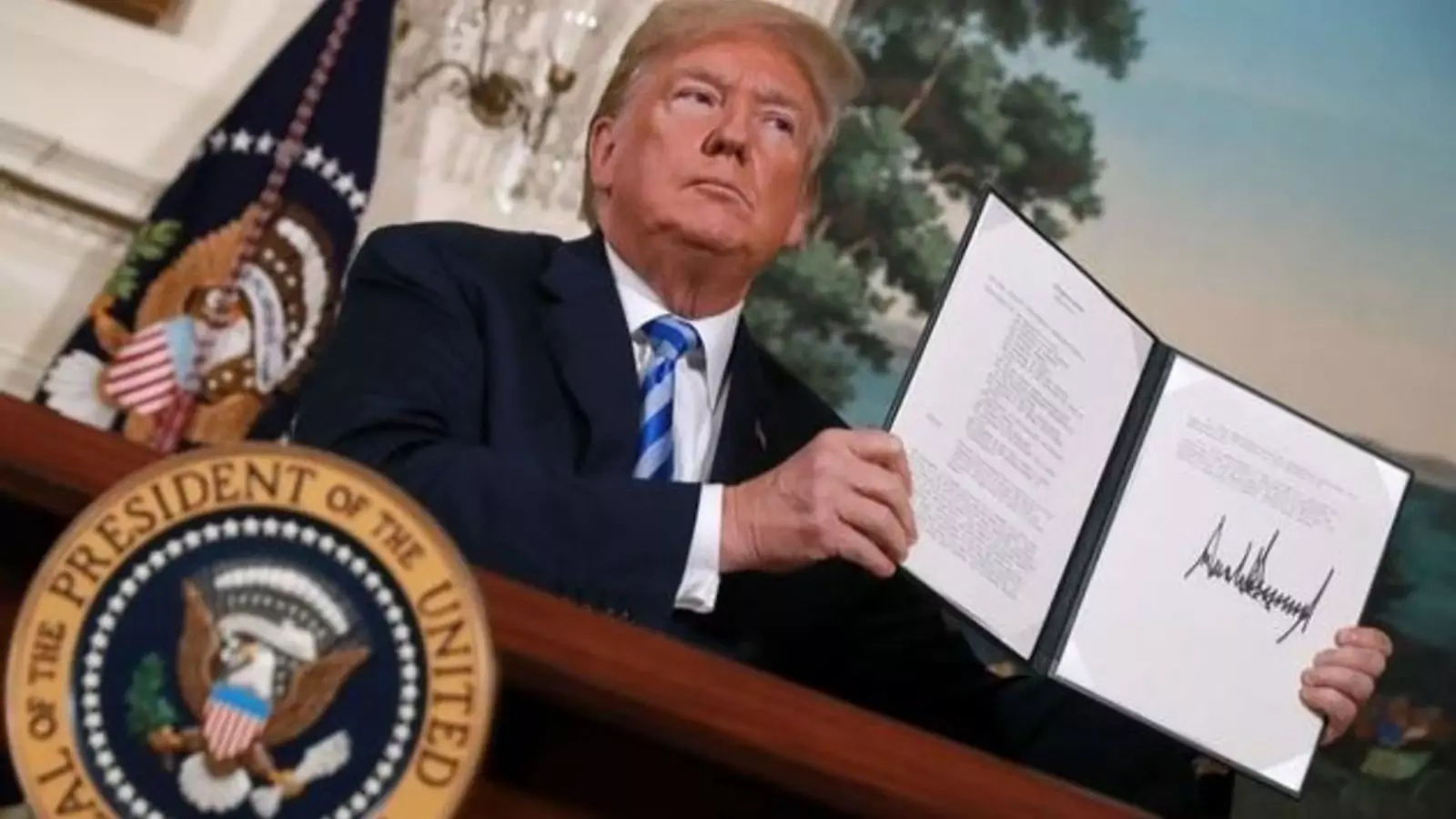Trump's Iran Policy Proves the Primacy of U.S. Power—but to What End?

Originally published at Hill
July 15, 2019 12:00 pm (EST)

- Article
- Current political and economic issues succinctly explained.
As Iran slowly untethers itself from the Iran nuclear deal’s central constraints on enriched uranium, signaling the deal’s potential collapse, President Trump is proving that U.S. unilateral power remains paramount on the global stage.
Trump’s policy to kill the 2015 deal has been prevailing against the objections of the remaining signatories, perhaps the most powerful global counter-coalition possible — China, Russia, Germany, France, the United Kingdom and the European Union.
More on:
It has been prevailing despite that Iran had until very recently been abiding by the deal following the U.S. withdrawal last May. But without an endgame strategy on Iran that includes an exit ramp off the escalatory ladder of tensions and a solution to the nuclear problem, Trump’s victory will be a Pyrrhic one.
Throughout the Cold War and after, it was dogma that the United States needed partners in order to make sanctions work. With Iran, Trump has shown that the U.S. alone remains a preeminent power that can implement an unprecedented “maximum pressure” campaign of primary and secondary sanctions.
U.S. unilateral sanctions, and the threats to retaliate against companies doing business with Iran, have effectively crippled the Iranian economy, isolating it from international financial markets, drying up foreign investment, cutting its oil exports to 1.1million barrels per day (bpd) and below, stifling its economy (which is projected to shrink by 6 percent in 2019) and causing its currency to lose 60 percent of its value against the U.S. dollar.
But Trump’s assertion of U.S. unilateral power, through the use of sanctions, is a disruptive power and not an end in itself. To date, U.S. efforts to strengthen the Iran nuclear deal have been counterproductive to enhancing U.S. security. By withdrawing from the deal, Trump has provoked an Iranian reaction that could lead to the deal’s collapse while providing no alternative constraints on the Iranian nuclear program.
The Iran Deal had resulted in a rollback of the Iranian nuclear program that included the removal of 98 percent of its enriched uranium, decreasing its enrichment capabilities to very low levels of 3.67 percent — far below weapons grade — and subjecting its program to robust international inspections. As the deal unravels, the Iranian program will be able to continue unfettered, adding once again to the destabilizing challenges in the region, not reducing them.
More on:
Furthermore, as the president recently increased the sanction pressure — including tightening sanctions on Iran's oil exports, sanctioning Iran’s supreme leader and placing its elite military, the Islamic Revolutionary Guard Corps (IRGC), on the terrorist list—Iran has adopted a more aggressive response and tensions have escalated across the region.
The U.S. and Iran came very close to open conflict as the confrontation spilled into the Persian Gulf. And the chances for conflict are only accelerating as tit-for-tat reactions continue to disrupt the shipping lanes in the gulf.
U.S. sanctions also have enabled the IRGC and Iran’s conservatives to tighten their control over Iran's economy and politics. And U.S. rejection of the Iran deal has turned the Iranian public against negotiations with the West, particularly on its nuclear program, further constraining Iran’s president, Hassan Rouhani’s; 72 percent do not think Iran should negotiate with the West because it is untrustworthy.
The challenge before Trump is whether he is willing and able to convert U.S. power into an endgame strategy that results not in war by design or miscalculation, not in Iran building nuclear weapons, but in his stated goals of a nuclear weapons-free Iran with a better nuclear deal and an Iran that, as Secretary of State Mike Pompeo put it, behaves like “a normal nation.”
Meeting that challenge won’t be easy, especially for an administration that is short-staffed on the national security cabinet level on down, and a president who is dismissive of coordinated approaches to strategy and policy.
Trump, nonetheless, did lay the groundwork for progress earlier recently when he offered to talk to the Iranians without pre-conditions. If this offer is more than just a hat tip to a U.S. domestic constituency, there needs to be a comprehensive strategy with clear goals, objectives and options.
Time is of the essence as Iran moves away from the constraints on its nuclear program. To be successful, a strategy would need to include as incentives something very similar to what the president appears to be offering North Korea: broad-based sanctions relief and security guarantees reinforcing the president’s claim that he is not pursuing regime change in Iran.
Although the Iranian leadership has rejected the president’s offer, the Iranians should reconsider their response. The Iranian strategy is inappropriately focused on pressuring the other signatories to fulfill the trade and investment requirements of the Iran nuclear deal with threats of incremental violations every 60 days. This strategy does not fully recognize how the U.S. has checkmated the other signatories on this issue.
If the U.S. is going to go it alone on Iran, it must implement a strategy that leverages U.S. economic power into opportunities for a diplomatic solution that makes the U.S. more secure.
 Online Store
Online Store